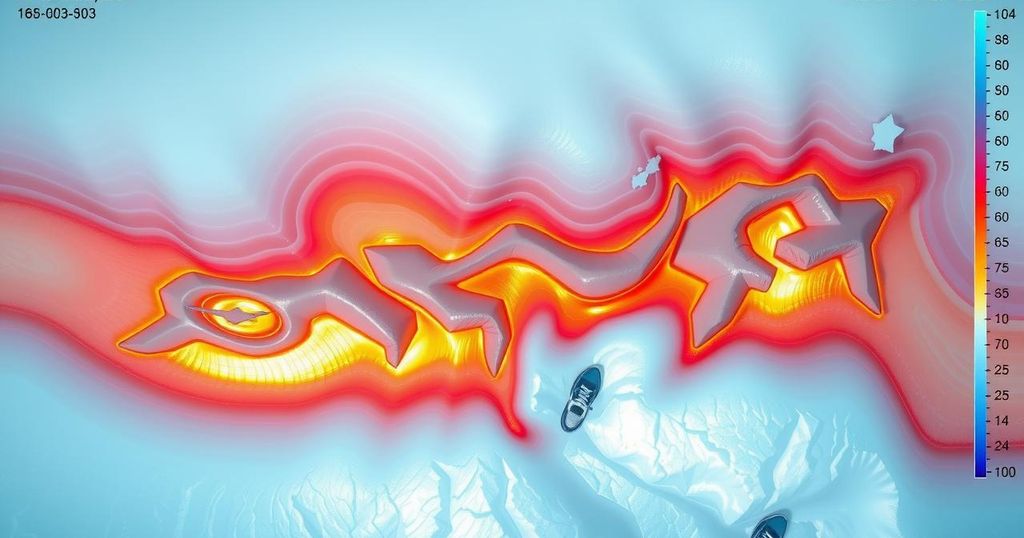Drilling in Antarctica Yields Potentially Oldest Climate Record

A newly drilled ice core in Antarctica may provide the oldest unbroken climate record, revealing a timeline of over a million years. The 2,800-meter core preserves ancient air and climate data critical for understanding past climate changes. This significant find aims to illuminate Earth’s climatic history and the role of greenhouse gases within it, amidst concerns of current anthropogenic climate impacts.
Recent drilling in Antarctica has revealed a colossal ice core that may present the most complete record of Earth’s climate, extending back over one million years. The ice core measures 2,800 meters (9,186 feet) and contains up to 13,000 years of compressed climate history within each meter. Initially analyzed by the European Project for Ice Coring in Antarctica (EPICA), scientists believe the top 2,480 meters contain climate data dating back to 1.2 million years. Additional investigations may uncover even older ice from the pre-Quaternary period, potentially more than 2.5 million years old.
The significance of ice cores in climate research cannot be overstated, as they encapsulate particulate matter, water isotopes, and bubbles of ancient atmospheric gases such as carbon dioxide and methane, facilitating a reconstruction of historical climates and environmental conditions. This latest drilling took place at Little Dome C, East Antarctica, a site chosen for its thick layers of ice that had not previously melted. Researchers faced challenges, including extreme temperatures averaging -35 ºC (-31 ºF) at high altitudes, as they utilized state-of-the-art isotopic analysis technology to conduct real-time readings while extracting the core.
The importance of this drilling effort lies in its potential to elucidate a puzzling period of climate history between 900,000 and 1.2 million years ago, a time associated with extended glaciation cycles. This period is believed to have posed existential challenges to early human populations in Africa. As anthropogenic emissions increasingly disrupt natural glacial cycles, the information garnered from the fresh ice core may provide invaluable insights into the dynamics of greenhouse gases and global temperature swings. The analysis thus far suggests preliminary findings indicative of significant climatic shifts that correlate with past extreme temperatures.
Scientists, including EPICA’s Chief Scientist Julien Westhoff and Director Carlo Barbante, have expressed optimism regarding the potential discoveries from this ice core. Richard Alley, a respected climate scientist, echoed this sentiment, emphasizing that the research team will likely yield enlightening information concerning the intricate interplay between greenhouse gases and historical temperature variations.
The drilling of the ice core at Little Dome C is part of an ongoing effort to better understand Earth’s climatic history and the factors contributing to drastic climate fluctuations. Ice cores serve as crucial records of past atmospheric conditions, trapping gases and particulates from different geological epochs. The information they provide is instrumental in predicting future climate trends and addressing current climate challenges faced by humanity. Until now, the longest record from a vertical ice core only encompassed the past 740,000 years and was obtained in 2004, highlighting the groundbreaking nature of this new project.
The recent Antarctic ice core drilling project represents a significant advancement in climate science, potentially offering the oldest unbroken record of Earth’s climate. By delving into over a million years of history, researchers can better understand past climate dynamics and assess the implications of current anthropogenic alterations. The findings from this ice core will play a crucial role in unraveling the mysteries surrounding historical climate changes and the natural cycles of glaciation, ultimately contributing to enhanced climate modeling and mitigation strategies.
Original Source: www.sciencealert.com






